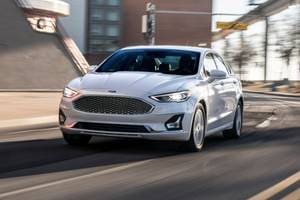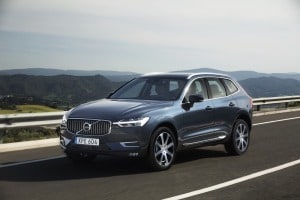Quick, What's the Fastest-Selling Car in America?
Quick, what's the fastest-selling car in America?
The answer is the Toyota Prius C hybrid car, according to Edmunds.com's analysis of March sales and inventory numbers. The Prius C, the newest, smallest and least expensive member of the Toyota Prius hybrid family, barely has time to get its tires dirty because the Prius C, with a starting price of about $19,000, stays on the dealership lot only about eight days until a buyer drives it away. By comparison, the average vehicle across the U.S. industry sat on a dealership's lot an average of 53 days in March, according to Edmunds.com's metric referred to as days-to-turn -- the number of days between a vehicle being delivered to a dealership to it being purchased by a customer. The list of Top 20 fastest-selling vehicles had no higher than a 21 days-to-turn rate.
While a recent study by Michigan-based research firm Polk noted that hybrid buyers lack loyalty to the fuel-saving technology — only 35 percent of hybrid owners who returned to the market last year bought another hybrid, Toyota hybrids are in high demand — and low supply. The Toyota Camry Hybrid and Toyota Highlander Hybrid made the list of quickest-selling cars in March; the Prius V, the larger member of the family of three, was on that list in February. The Camry Hybrid is built in Georgetown, Ky., alongside standard-issue Camry models. The Highlander Hybrid SUV is built in Japan. However, Toyota announced last year, Highlander Hybrid production would be moved to its Princeton, Ind., plant by mid-2013.
Another fuel-sipper in strong demand is the Volkswagen Jetta Sportswagen. Volkswagen has been reporting sales of the station wagon have been down compared with a year ago, but it is largely due to lack of availability, especially of ones with the popular diesel engines, which account for nearly 90 percent of Jetta Sportswagen sales. A company can't sell 'em if it doesn't have 'em.

Spanking new models often make the list of quick sellers because factories slowly and cautiously ramp up production to ensure there are no glitches. At the same time, certain consumers absolutely must have the latest, greatest vehicle on the market. Such is the case with a number of vehicles that made the March top 20 fast-seller list: the sporty Lexus GS 350 sedan, Mazda CX-5 SUV, Porsche Cayenne SUV, the small Subaru Impreza sedan and Honda CR-V, which returned as America's best-selling compact SUV in March.
Some companies and certain of their models make the quickest-selling vehicles just about every month, indicating the strength of the brand and the product as well as the automaker's capacity constraint. Two notable ones are Audi and Hyundai.
The Audi Q7 SUV is always in short supply and was joined in March by the smaller Q5 SUV and the classic A6 sedan. Currently all Audi models sold in North America are built in Europe, but because of strong demand for Audis, the company's aggressive goal to sell 200,000 vehicles in the U.S. by 2018 and severe capacity constraints, Audi is expected to announce it will build vehicles in North America to better serve the local market.
The only thing holding South Korean automaker Hyundai from even more stunning growth is vehicle availability. Three Hyundai's — all new or vastly revised models — made the quickest-selling list in March. They are the pocket rocket Veloster, the subcompact Accent. Hyundai Elantra compact, which was named 2012 North American Car of the Year in January.
The winner of the 2012 North American Truck of the Year, the Land Rover Range Rover Evoque also is on the March Top 20 quickest-selling vehicles list.
BMW had two vehicles — both SUVs — on the list as well, the U.S.-built X3 and the X6. So too is the Kia Soul, the boxy car promoted in advertising with singing, dancing hamsters, rounds out the top 20. The Soul has been outselling its boxy competitors by a long shot, setting sales records every month.
Inventories are closely watched by industry analysts — and auto companies. In the past, automakers, especially Detroit's, kept factories running even when demand for a vehicle was low, in part, because they still had to pay workers if they cut production. That caused inventories to bloat and forced automakers to offer hefty incentives just to move the metal. But since the recession and the bankruptcies of General Motors and Chrysler, automakers have been much more disciplined about keeping production in line with customer demand. The industry's average days-to-turn has been in 47 and 57 days since January 2010. If inventories begin to bloat, the manufacturer shuts down the factory until the marketplace sops up the inventory, as is the current case with GM's extended-range plug-in hybrid Chevrolet Volt.
Stricter production discipline allows automakers to show restraint on incentives, which are at their lowest levels since 2008, according to Edmunds.com's Total Cost of Incentives (TCI) calculations. That's bad news for consumers because low inventories and quick turn of vehicles equals little — if any — discounts and haggling room on the showroom floor for hot sellers.





